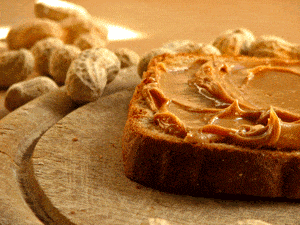
This comes from the research teams at King’s College London, Cambridge University and Duke University in North Carolina who currently have three studies underway on the avoidance of high allergen foods. And while nothing is currently set in stone, Professor Gideon Lack of King’s College believes, “There is a possibility that we are achieving the reverse intentions through this avoidance policy.”
It all started with a research study at Cambridge, which suggested that by giving children with peanut allergies peanut flower consistently for 30 weeks, their tolerance to peanuts could be increased. By the end of the study, most of the children were able to eat 32 peanuts with no reaction.
Researchers have also been following 640 babies, half of which are said to have a higher risk for food allergies. These babies are being exposed to traces of peanuts during the early years to see if they actually experience any adverse effects.
A 2008 study co-authored by Professor Lack revealed the Jewish children in Britain are ten times of a higher risk in developing peanut allergies than those that live in Israel. The main noted difference was that Jewish children who reside in Israel are exposed to more peanut containing foods than those that reside in Britain.
The studies have provided so much evidence that the Department of Health actually revised its guidelines on food allergies, stating that there wasn’t enough evidence to support diet restriction in pregnancy or in the early years.
Of course, only parents can make the decision in the end, and Hugh Sampson of the Mount Sinai School of Medicine’s Food Allergy Institute in New York says, “The biggest thing is not to let mothers feel guilty about whatever choice they make, because at this point, we really don’t know the best answer.”
Related Articles:






